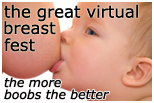The diary-style blog is a distinct subcategory of the blogosphere. It is marked by long, discursive posts detailing aspects of the diarist’s daily life, a paucity of outbound links relative to political or punditry blogs, and a generally small number of commenters who tend to respond regularly to posts and whose own blogs, in turn, are read by the blogger. Diary-style blogs are tremendously more prevalent than their news or current events counterparts, and they are overwhelmingly female-authored.
Despite their statistical dominance of the blogosphere, these texts have not drawn very much critical attention within digital media studies. Why? Helen Kennedy cites Mark Dery, Sherry Turkle, and Howard Rheingold’s early work as setting a particular precedent for the examination of community online; while valuable, such texts concentrate on aggressive textual flaming, experimentation with alternate identities in MUDs, and very public modes of interaction on Bulletin Board Systems, respectively. This emphasis on ‘public texts’ persists in the Web 2.0 era. Susan Herring et al propose that a focus on these texts “indirectly reproduc[e] societal sexism and ageism, and mispresent[] the fundamental nature of the weblog phenomenon”; they ultimately argue for “more research on weblogs produced by women and teens,” blogs that are overwhelmingly the personal musings on private lives overlooked by prior research Auto/biography scholars have also noted this lack, and have flagged as well key intellectual and methodological challenges posed by a shift in emphasis to an examination of more private online spaces. Analysis of the diary-style blog offers ample opportunity for methodological innovation, then, as well as the more immediate practical benefit of opening another set of texts to critical view, texts that are perhaps more representative of popular practice than what earlier scholarship suggested was the case.
The diary-style blog, I contend, is a hybrid genre, at once public and private, and this hybridity mediates how authors and commenters relate to each other in this format. The diary-style blog is, obviously a public space, published on the broader internet, a space where bloggers actively solicit feedback—opinions, advice, experience—from a community of readers; where commenters may respond to each other as much as to the original post, returning multiple times to the thread to see where it leads; where traffic statistics and variously flashy ads are displayed; and where other sites are referenced through links, blogrolls, and badges. Diary-style bloggers who enroll in directories or add social media tools like Kirtsy or Digg understand their writings to be public texts, in that they seek to disseminate them more widely through these means. The diary-style blog is also, though, a private space, a location over which a blogger has undisputed agency: setting access levels to posts and comments; choosing a site title and URL; publishing, organizing, and deleting posts at will; selecting and personalizing a design template; composing and displaying autobiographical profile information; and asserting intellectual property through licensing or copyright statements. Bloggers who deliberately misspell oft-searched terms (some bloggers who breastfeed type ‘b00bs’ for ‘boobs’, for example), who remove sensitive posts after a short period of time, or who keep their writings a secret from their ‘real life’ friends and family treat their texts as private, in meaningful ways. As Miller and Shepherd note, then, “[b]logs can be both public and intensely personal in possibly contradictory ways.”
I propose that an ethic of hospitality infuses much of the writing in the one subset of the diary-style blogosphere: I will demonstrate by way of reading examples of how one mommy blog manages disagreement not by recourse to flaming and namecalling but rather by compositional and interpersonal strategies that manage conflict and reinforce community.
To conclude, MOMMY BLOGS KICK ASS. Thank you, and um, where's the coffee?
Friday, October 17, 2008
The Big Thinky, Straight From Scandinavia ...
Subscribe to:
Post Comments (Atom)







15 comments:
Hey, this came up just as I was commenting!
Now post the rest of it. And/or email it to me, because it is about someone awesome.
Dear, you are in your scholarly mode. Time to enjoy yourself!
lwarley, i will enjoy myself when the paper is finished being rewritten for the tenth time -- or once the (50DKK == $10) mini-bottle of wine I'm drinking hits my system ...
beck, it IS about someone AWESOME! it's about YOU! and how you rant but everyone loves you! ;-)
I like the Big Thinky. I think you rock.
You will rock them.
This is great Mimi and I can so see the connection to Beck's blog...she is able to tell her stories and give her opinions in a way that neither offends nor instigates a conflict. You just want to listen.
I hope the wine is working!
ohh I feel smarter just having read this. I am having some concerns about 'real life' people finding me and if they do, I'll just show them this!
Beck as an icon of an "ethic of hospitality" ... brilliant.
Love it...almost as much as a good Beck rant.
It may be that the mommy blogs aren't studied because, while there are many fantastic ones out there, the vast majority are (sorry) almost mind-numbingly boring. Researchers probably do not know where to look first to find the interesting ones.
Also, because they do constitute an on-going conversation of sorts between the blogger and the commenters, it is probably hard for a researcher unfamiliar with the blogging world to jump into the middle of it and understand what is going on.
I know when I first started reading blogs, I thought that all of them were just boring renditions of "I took Johnny to kindergarten today, blah, blah, blah..." It took a month or so for me to discover the ones that went a little deeper. And I didn't understand all the back and forth at all. Why should the blogger care what people say in the comments? Now of course I get it, being a fully addicted blogger myself. But I think it would take someone who already understands this microcosm of ours to really study it.
Oooooh, I like.
So hospitality is now an ethic? Cool. When do we all get Beck cupcakes delivered to our door steps?
i love it when you get thinky. :-p
This was well crafted and a tremendous read. I am so very glad I stumbled across this post. This single post has me hooked and I look forward to reading more from you.
late, but two things...one, i want Beck cupcakes, definitely. two, can i read the paper i assume you presented? my MA thesis of years gone by included a lot of Turkle and i'm writing the proposal to continue my PH.D (education) on similar knowledge construction online themes, but eight years later, and was thinking of exploring blog communities.
Post a Comment